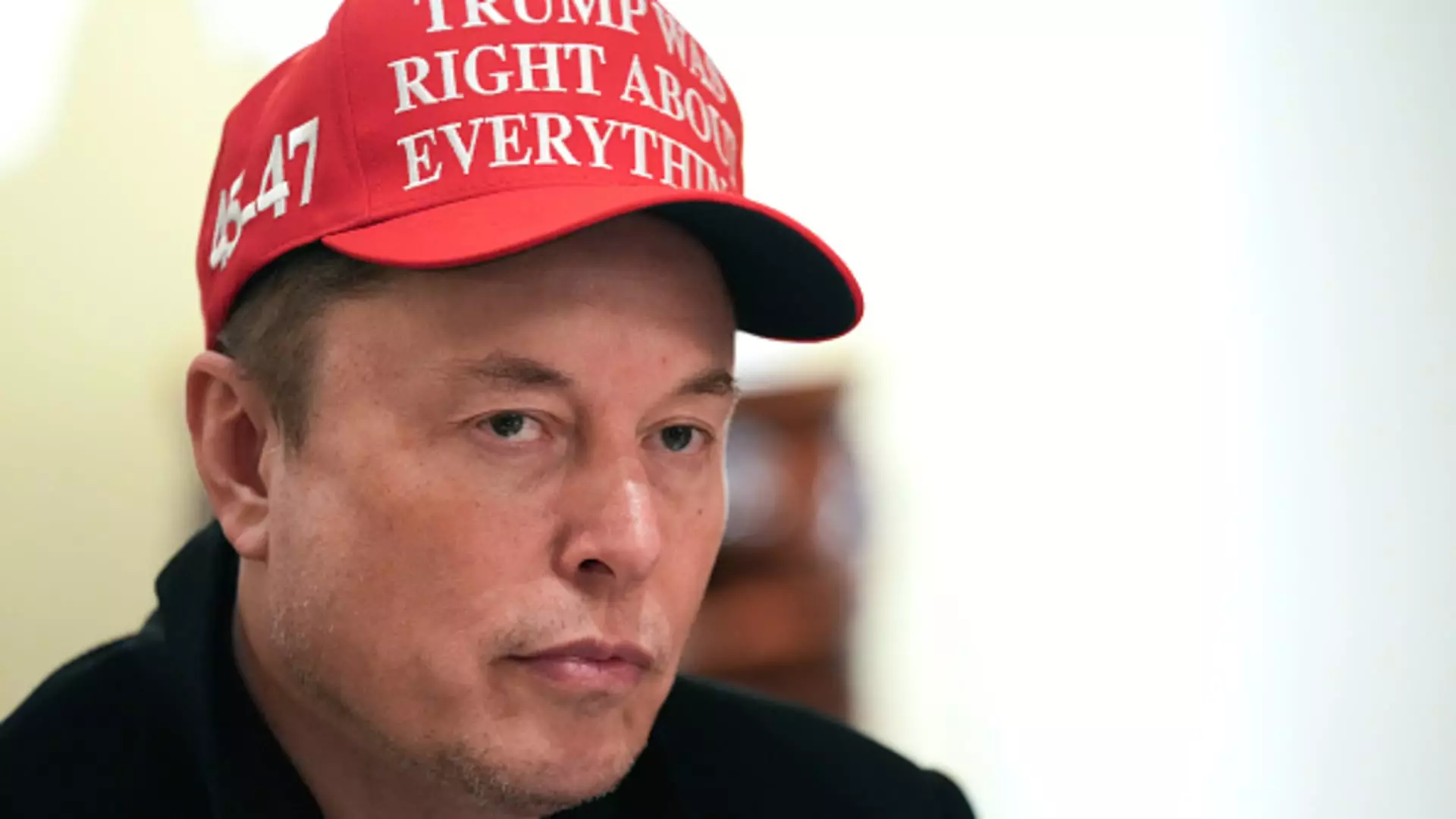Once heralded as the beacon of innovation and sustainability in the automotive industry, Tesla finds itself grappling with significant reputational challenges that may undermine its long-term viability. On a dismal Monday, shares fell by nearly 6%, landing the stock at a shaky $227.50, only a few dollars above its lowest point of the year. After such a staggering 44% downturn so far, skeptics now question whether the electric vehicle (EV) giant can reclaim its former glory or if it’s on the brink of brand irrelevance.
Much of the recent turmoil appears linked to CEO Elon Musk’s distractions outside of Tesla. His deep dive into political waters—most notably his alignment with the Trump administration—has confused and alienated a substantial segment of its customer base. This dilemma brings to light a critical nuance of modern business: the intricate relationship between a company’s leadership and its brand identity. Tesla, while a leader in technology, has inadvertently become a political pawn, with Musk’s actions resonating negatively across various demographics.
The Political Perception Dilemma
Tesla’s troubles are not merely a question of product offerings or business strategy; they are steeped in political controversy. With analysts and investors increasingly concerned about “ongoing brand erosion,” it becomes crucial to analyze Musk’s political engagements and their impact. His recent campaign contributions aimed at reinstating Trump and efforts to slash federal jobs may satisfy a niche voter bloc but simultaneously alienate a more significant share of potential EV buyers. This paradox serves as a cautionary tale for corporate leaders: Your political affiliations can shape public perception more deeply than your marketing strategy.
A cursory glance at Tesla’s performance reveals alarming trends in consumer sentiment. A significant 27% of surveyed respondents expressed interest in purchasing a Tesla in March, a dramatic drop from 46% in January 2022. These statistics demonstrate that Tesla’s challenges are not just about supply chain issues or competition; they reveal a nuanced shift in consumer psychology. The consumer of today seeks alignment with the values of brands they support, and for many, Musk’s political affiliations create discord.
Impact on Sales and Futures
Amid the turmoil, Tesla reported a troubling decline in vehicle deliveries for the first quarter, down 13% from the same period last year. This signals a disconnection between product demand and brand affinity, showcasing how perception can dictate sales. Additionally, analysts warn that competitive pressure in China, coupled with a wave of nationalistic sentiment, may induce more consumers to opt for domestic automakers. If this trend continues, Tesla could find itself forced to export more vehicles made in China, which threatens to create downward pricing pressure.
Moreover, the looming tariffs introduced under Trump’s administration could further complicate Tesla’s financial outlook. Analysts from Oppenheimer have pointed to potential weaknesses in revenue arising from both U.S. and European markets. This uncertainty adds another layer of complexity, with investor confidence hanging delicately in the balance. The stakes are high, and how Musk chooses to navigate this tumultuous political landscape may decide the fate of Tesla as a prominent market player.
Market Analysts and Future Predictions
In light of these troubling signs, market analysts remain cautiously optimistic, yet entirely aware of the unpredictability that characterizes Musk’s leadership. Some investors, like Dan Ives from Wedbush, are eager to hear a “turnaround vision” from Musk during earnings calls—a call that he hopes will address the brand damage inflicted by political affiliations. Yet, even the staunchest supporters are beginning to estimate a “permanent demand destruction” to the tune of 15% to 20% due to the controversies surrounding Musk.
Rating firms are responding to market realities, with Barclays issuing a sell rating and slashing their price target on Tesla shares from $325 to $275. The lowering of targets hints at a troubling consensus among industry experts: Tesla, once seen as an unstoppable force in the EV market, may require a significant strategic re-evaluation to realign with a disenchanted consumer base.
What remains evident is that Tesla stands at a crossroads. The notion of “disruption,” once synonymous with the brand, now feels precarious under Musk’s leadership. The coming weeks and months will be pivotal as the company grapples with its identity and re-engages with its core customers amid turbulent times.

